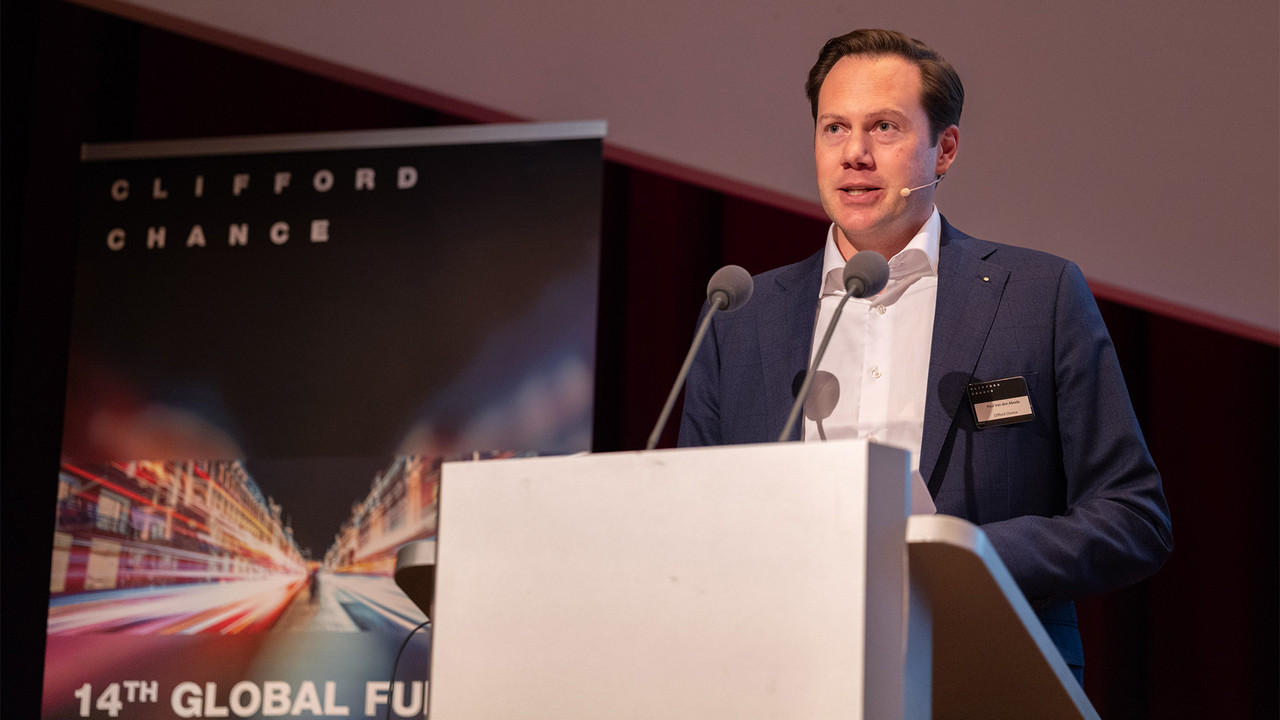There is guarded optimism around the ELTIF 2.0. “This will be a major opportunity, because it will be almost the only way to market a non-French alternative fund to retail investors in France,” said Marie Preat, Counsel in Clifford Chance’s Paris office. Also significant are the abolition of the minimum ticket size, the ability to offer some degree of liquidity, and easements around marketing. Jan Grabbe, Tax Partner in the Frankfurt office agreed regarding the German market, adding “I expect these funds will tend to be launched out of Luxembourg.”
However, adaptation will be required by both clients and managers. “Retail investors are used to liquid products, while asset managers normally deal with a handful of professional investors,” noted Christian Lennig, Investment Funds Counsel in Luxembourg.
AIFMD 2 is taking shape, and Simon Crown, Partner in Clifford Chance’s London office gave a flavour. He noted that the principle of delegation will remain, but with more controls and reporting likely. As regards costs, there could be an ESMA commissioned report, and there is continued impetus for liquidity management tools to be required for open ended AIFs. Implementation of AIFMD 2 is likely for the second half of 2025.
On Brexit, Mr Crown said signs of regulatory divergence between the EU and UK are emerging. Yet he noted that this might change if a new UK government is elected at the end of next year.
The US regulator is on course to release details about ESG regulation, particularly on disclosure and fund naming rules, said Vadim Avdeychik, Partner with Clifford Chance New York. He noted that politics is playing an increasing role in the framing of sustainable investing regulation, with voices around the Republican Party increasingly critical of this trend.
In Europe, a key focus is refining SFDR, said Maren Stadler-Tjan, Partner in Clifford Chance Luxembourg Investment Funds practice. She pointed to on-going work at ESMA regarding the methodology to assess sustainable investment, as well as the practical application of principle adverse impacts. She suggested that the industry could hope for stability around ESG rule making by 2025.
An overview of the situation in Asia, with a particular focus on moves to help global managers access the Chinese market was given by Viola Lui, Partner in the Hong Kong office. She mentioned Chinese feeder funds being able to invest in global master funds, and how foreign investors can now gain access to Chinese onshore commodity futures and options. As regards ESG, Asia as a whole is lagging the EU and US, but is “slowly catching up.”
The relevance of changes in EU and global tax regulation for the fund industry was highlighted. ATAD 3 is due to feature a carve out for funds, but Frankfurt Tax Counsel Andrius Bielinis warned that there could be implications for the fund sector. On the global Pillar 2 proposals, consensus is that these are unlikely to affect most fund structures, but specific vehicles could feel some impact.
When a fund comes to term, most often it is plain sailing, but legal disputes can break out, with delays of many years possible if claims are made. “It is important to consider the duties of the liquidator and understand precisely what is being distributed and how, and the valuation process,” said Vishal Mashru a Senior Associate with the Investment Funds practice in London. Yet Ada Schmitt, Counsel, Litigation & Dispute Resolution in the Luxembourg office said: “there is a high level of inventiveness by fund stakeholders to make legal damages claims if there is underperformance.”
